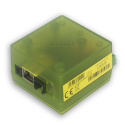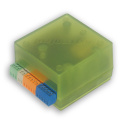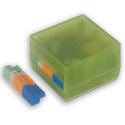-
Shopping cart is empty
-
x

-
Shopping cart is empty
-
x
-
LK3.9 IoT controller
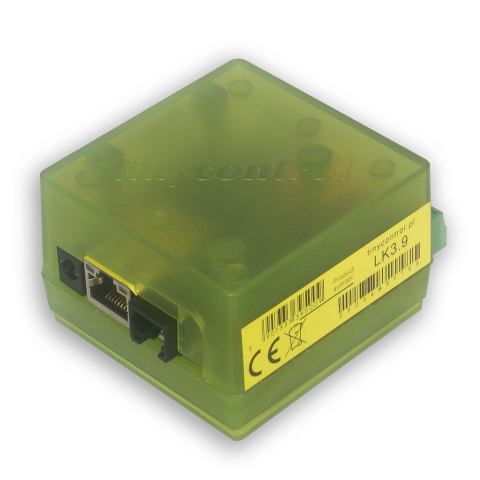

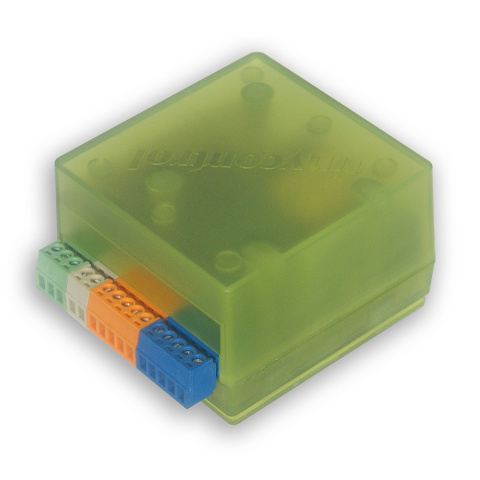

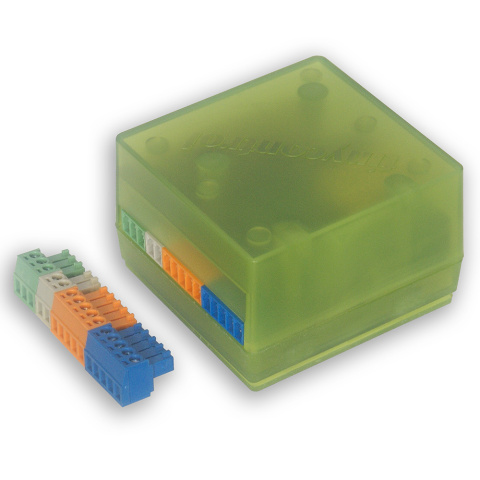

241.08
| Shipping within | 24 hours from the moment of positive payment authorization |
| Shipping price | Depends on the delivery location |
| Availability |
Average availability
|
| Leave your phone |
LK3.9 is continuation of v3.5 series. It has same API. Is recommended for typical monitoring and automatization applications in IT enviroment. This version is equipped with a faster processor ARM 32F407. It has the same functions but different firmware series since v3.5
The device features a built-in web server (similar to all LK versions) for viewing readings and configuring settings via a web browser.
Key Features:
- 2 analog inputs with switchable range (measuring from 1 mV to 33 V): suitable for measuring voltage, DC current, AC current (with additional sensors), pressure sensors, thermocouples, distance sensors, photoresistors for light measurement, and many more.
- 2 analog inputs with switchable range (measuring from 1 mV to 55 V): for measuring voltage, DC current, AC current (with additional sensors), pressure sensors, thermocouples, distance sensors, photoresistors for light measurement, and others.
- 2 analog inputs for measurements up to 3.3 V: for voltage and current measurements (DC and AC via additional sensors) and 4-20mA converters.
- I2C bus for connecting sensors via RJ12 connector: supports a wide range of I2C sensors (list below) and DS18B20 via the 1-Wire bus.
- Serial bus (UART).
- Bus for RS485 converter - MODBUS RTU (additional board required): allows reading pre-configured devices and setting up configurations to read any device using the Modbus protocol.
- 4 logic inputs: as status sensors for door monitoring, infrared motion sensors, buttons for manual switching with a bistable mode option, pulse counters for energy meters, and timers for input resets.
- 1 relay (NO, C, NC).
- 1 transistor output: power supply voltage output, for controlling loads with up to 0.5A current consumption.
- 4 outputs for relay/transistor switching in OC standard.
- 4 PWM outputs from 50 Hz to 100 kHz.
- Measurement of supply voltage and on-board temperature.
- Ethernet communication (10/100Mb) with 802.3af PoE support.
- Management via a web interface.
Key interface capabilities via the web interface:
- Viewing sensor data in an administrator or user panel with customizable layout.
- Event configuration.
- Actions scheduling configuration.
- OLED display setup.
- MQTT client, HTTP client, and SNMP protocol configuration.
- Email notification setup.
- Access management, firmware upgrades.
- Local or network time (NTP) configuration.
Technical Specifications:
- Power supply voltage: 8÷55 V.
- Power consumption: 0.5 W.
- PoE support: Yes (802.3af) Mode A, passive Mode B with jumper.
- Interfaces: Ethernet 10/100 Mbit/s,
- Operating temperature range: -20 to +85 °C (non-condensing).
- Dimensions: 66x79x40 mm (without DIN mount).
- Weight: 90 g.
- DIN rail mounting: Yes (35 mm).
Documentation: LANControllerDocumentation
- MQTT Server: mqtt.ats.pl (proprietary solution enhancing LK device functionality; free for non-commercial users with a single email login).
MQTT Server Features:
- Data collection from LK sensors and visualization via charts and listings.
- Data filtering and MQTT messaging: Format/Filter/Topic (e.g., controlling one device based on readings from another).
- Task scheduling for managing high-frequency events.
- Remote control of the LAN Controller via a mobile app or web page, regardless of network location.
Applications:
IT:
- Monitoring temperature and humidity in server cabinets, controlling ventilation and heating.
- Monitoring door access.
- Monitoring battery voltage, power supplies, and grid power outages.
- ISP watchdog for Ethernet connection monitoring and device resets.
- Sending input states and environmental parameters overlaid on IP camera images (e.g., Dahua).
INSTALLATIONS:
- Temperature monitoring and basic automation for central heating systems.
- Monitoring temperature and pressure for solar systems, with basic automation.
- Monitoring heat pump operation with data presentation on Internet graphs.
- Monitoring supply voltage and automatic switching to backup sources.
- Remote energy consumption monitoring via Modbus meters or pulse inputs.
- Remote switching of devices from a simple operator panel.
- Network-based (wired or wireless) command transmission between multiple LK devices.
SMART HOME:
- Automated control based on time and specific settings, e.g., turning on a heater when the temperature drops below a set level.
- Remote control of outputs via mobile devices.
- Automated light or device control based on schedule or remote commands.
- Combined control from wall switches and the device.
- Dusk switch functionality.
RENEWABLE ENERGY:
- Monitoring solar panel performance.
- Monitoring wind turbine performance.
- Basic battery charging control.
- Measuring DC energy consumption.
- Measuring AC energy consumption and inverter production.
AGRICULTURE:
- Monitoring and controlling temperature and humidity in greenhouses.
- Cyclical control of feeders and other equipment in animal farming.
- Irrigation systems.
Supported Sensors and Devices:
Analog Inputs:
- AC voltage sensor: AC-meter.
- AC current sensors: SCT013-000, SCT-013-03.
- DC current sensors: ACS711EX_15, ACS711EX_30, ACS709_75, ACS711LC_12, ACS711LC_25, ACS711LC20, WCS1800.
- High Voltage DC sensor (for PV, under development).
- Temperature sensor: PT1000 (with additional resistor).
- Flood sensor (water).
Logic Inputs:
- Magnetic door sensors.
- Energy meters with pulse outputs.
- Rain sensors with pulse outputs.
1-Wire Bus:
- Temperature sensor: DS18B20.
I2C Bus:
- Humidity sensors: BME280, AM2320, HTS221, AM2301B, AHT20, AHT25.
- Particle sensors: SPS30, APM10 (PM1, PM2.5, PM4, PM10).
- CO2 sensors: SCD40, ACD10.
- OLED display: 0.96-inch.
Serial Port:
- GSM module.
- Particle sensors SPS30 and SDS011.
- CO2 sensors: MH-Z16, MH-Z19.
- PV inverters: Duraluxe.
- Ultrasonic distance sensors.
- 2D and barcode scanners.
- RFID readers.
Modbus Port (via RS485 converter):
- Bi-directional energy meters: SDM120M, SDM630M, SDM72D-M, Chint DTSU666.
- Professional water parameter sensor: RDO-PRO-X.
- Solar chargers: Epever Tracer.
- PV inverters: Sofarsolar and GTIL.
- Danfoss cooling controller: EKC 202C.
Modbus TCP:
- Modbus master can read sensors connected to LK (tested with Siemens LOGO).
HTTP Client:
- Smart WiFi plugs with Tasmota firmware.
- Displaying sensor readings on IP camera images.
Downloads
1. IoT controller with automation functions
2. Controller for energy management
3. Environmental monitoring with IoT
4. Home automation with LK3.9 controller
5. Energy management in a smart home
6. IoT controller for temperature and humidity measurement
7. Control of solar installations and heat pumps
8. Monitoring power supply voltage and switching sources
9. Remote control of electricity consumption
10. LAN controller with MQTT protocol support
11. AC and DC current measurement in IoT systems
12. Integration of environmental sensors with an IoT controller
13. Device control via Ethernet and PoE
14. IoT controller with analog and digital inputs
15. Industrial automation management with LK3.9
Safety Information
Important Safety Information for LK3.9
Familiarizing Yourself with the User Manual:
Before starting to use the device, carefully read the condensed user manual and strictly follow the recommendations contained therein.
Manufacturer’s Responsibility:
The manufacturer is not responsible for any consequences resulting from non-compliance with the recommendations provided in the condensed user manual or the safety guidelines listed below. The manufacturer also disclaims responsibility for improper use of the product contrary to its intended purpose as a device for IoT installations.
Protection Against Unauthorized Access:
The device must be installed and operated in a location inaccessible to unauthorized persons, particularly children.
Protection Against Weather Conditions:
The device must not be exposed to direct weather conditions. For outdoor installations, an appropriate hermetically sealed enclosure must be used as recommended by the manufacturer. The operating temperature range is specified in the user manual.
Power Supply and Electrical Safety:
Connecting the device to a power source with parameters not compliant with the user manual is prohibited.
If using relay outputs with voltages hazardous to health or life but within the permissible parameters specified in the manual, the electrical installation must comply with applicable standards and be secured against accidental contact within an appropriate enclosure.
Inspecting Technical Condition:
Before using the LK3.9 device, check its technical condition and that of the power supply. Using damaged power supply devices is strictly prohibited, as it may pose a risk of electric shock or fire.
Modifications and Repairs:
Any unauthorized modifications, alterations, or repairs of the LK3.9 device are strictly prohibited. If repair is required, contact an authorized service center, reseller, or the manufacturer directly. Devices that cannot be repaired must be disposed of as electronic waste.
Absence of Hazardous Substances:
The device does not contain hazardous substances or batteries.
